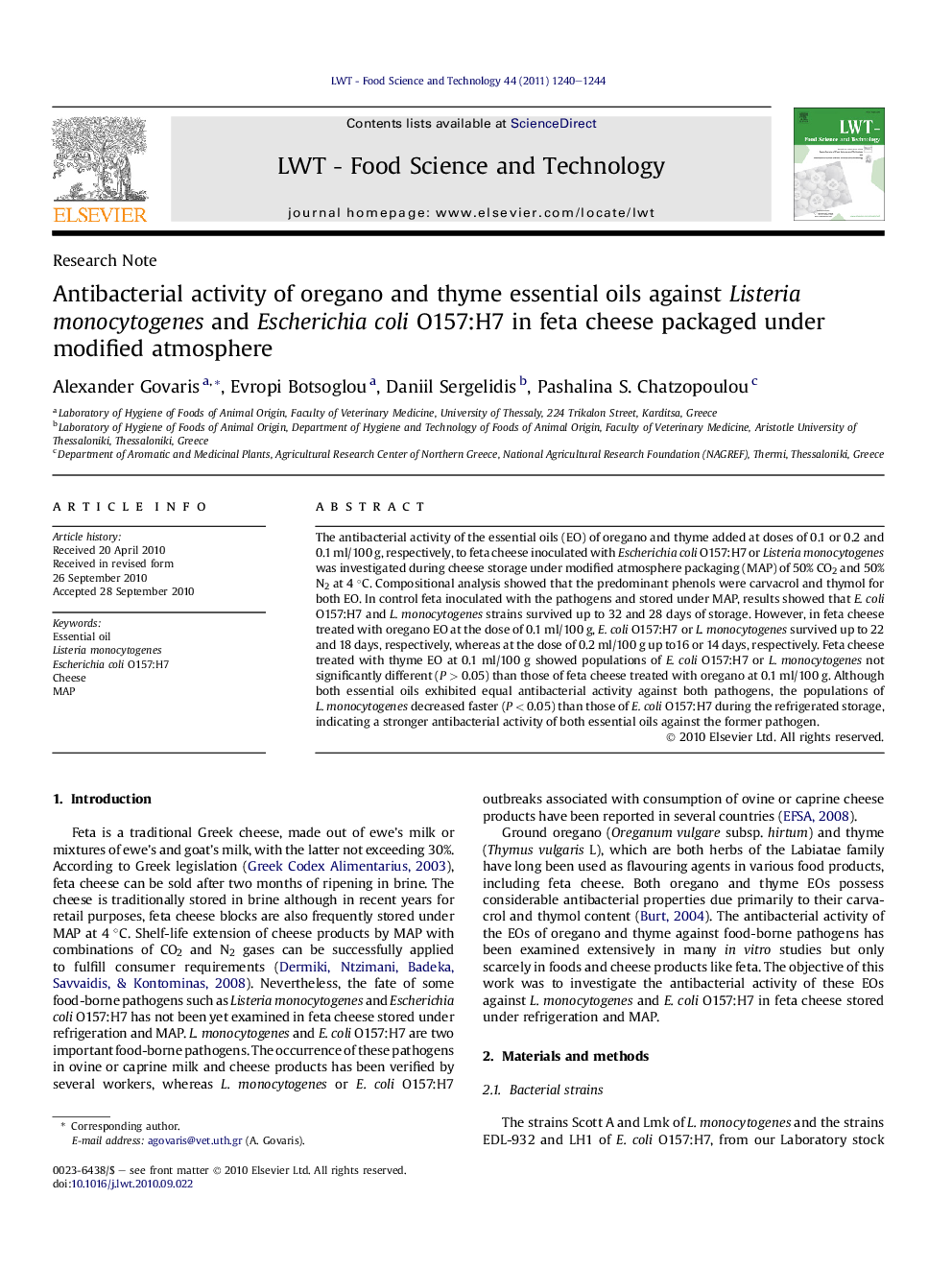| Article ID | Journal | Published Year | Pages | File Type |
|---|---|---|---|---|
| 4564388 | LWT - Food Science and Technology | 2011 | 5 Pages |
The antibacterial activity of the essential oils (EO) of oregano and thyme added at doses of 0.1 or 0.2 and 0.1 ml/100 g, respectively, to feta cheese inoculated with Escherichia coli O157:H7 or Listeria monocytogenes was investigated during cheese storage under modified atmosphere packaging (MAP) of 50% CO2 and 50% N2 at 4 °C. Compositional analysis showed that the predominant phenols were carvacrol and thymol for both EO. In control feta inoculated with the pathogens and stored under MAP, results showed that E. coli O157:H7 and L. monocytogenes strains survived up to 32 and 28 days of storage. However, in feta cheese treated with oregano EO at the dose of 0.1 ml/100 g, E. coli O157:H7 or L. monocytogenes survived up to 22 and 18 days, respectively, whereas at the dose of 0.2 ml/100 g up to16 or 14 days, respectively. Feta cheese treated with thyme EO at 0.1 ml/100 g showed populations of E. coli O157:H7 or L. monocytogenes not significantly different (P > 0.05) than those of feta cheese treated with oregano at 0.1 ml/100 g. Although both essential oils exhibited equal antibacterial activity against both pathogens, the populations of L. monocytogenes decreased faster (P < 0.05) than those of E. coli O157:H7 during the refrigerated storage, indicating a stronger antibacterial activity of both essential oils against the former pathogen.
